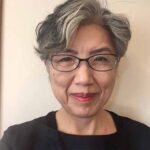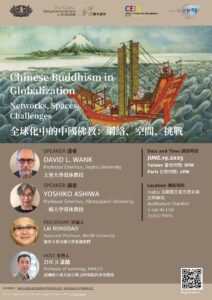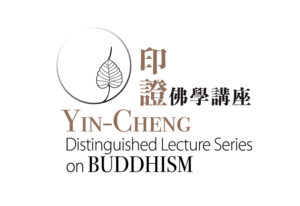Time: June 19, 8:00-10:00 pm (Taipei) | 2:00-4:00 pm (Paris)
Auditorium Dumézil, Inalco (2 rue de Lille, 75007 Paris)
Wank and Ashiwa’s lecture in English
Wand and Ashiwa’s lecture in Chinese
Part of the Mapping Networks of Modern Chinese Buddhism: Emerging Patterns and Centralities symposium
Abstract:
This talk examines Chinese Buddhism in the context of globalization through two interrelated lenses: as a social phenomenon and as a methodological inquiry. Ashiwa and Wank argue that the first two and a half decades of the twenty-first century mark a distinct phase in Chinese Buddhism, both within China and internationally. This phase is characterized by a plethora of new networks—comprising actors, sites, connections, discourses—including novel and historically unprecedented configurations. This phase has been driven by multiple factors, including: the global expansion of China’s political and economic power; the Chinese Communist Party’s promotion of Buddhism as part of national identity; and transnational mobilities of people (monastics and laypeople), ideas, and capital. To analyze the dynamics and patterns of this globalization, the speakers propose a conceptual framework with the concepts of space, network, and reaction. Its application is illustrated with empirical data from China, Sri Lanka, and other countries. These insights are grounded in Ashiwa and Wank’s four decades of fieldwork and the 2024 conference, “Chinese Buddhism in Globalization,” sponsored by the Henry Luce Foundation and hosted by Graduate Institute for Policy Studies in Tokyo.
About the speaker: David L. Wank (Sophia University)
 David Wank is a sociologist and Professor Emeritus at Sophia University, and a Research Affiliate at the Oriental Library in Tokyo. He co-founded the Graduate School of Global Studies at Sophia University and served as its dean. His research interests include state and society, social networks, power, values and systems, and globalization, in Chinese societies and Japan. He has been an academy scholar at Harvard University, and a visiting scholar at Columbia University, University of Pennsylvania, Xiamen University and other institutions, and has co-founded and led scholarly societies in Asian and global studies. His publications include: Commodifying Communism: Business, Trust, and Politics in a Chinese City; Social Connections in China: Institutions, Culture, and the Changing Nature of Guanxi; Dynamics of Global Society: Theory and Prospect; and The Global Japanese Restaurant: Mobilities, Imaginaries, and Politics.
David Wank is a sociologist and Professor Emeritus at Sophia University, and a Research Affiliate at the Oriental Library in Tokyo. He co-founded the Graduate School of Global Studies at Sophia University and served as its dean. His research interests include state and society, social networks, power, values and systems, and globalization, in Chinese societies and Japan. He has been an academy scholar at Harvard University, and a visiting scholar at Columbia University, University of Pennsylvania, Xiamen University and other institutions, and has co-founded and led scholarly societies in Asian and global studies. His publications include: Commodifying Communism: Business, Trust, and Politics in a Chinese City; Social Connections in China: Institutions, Culture, and the Changing Nature of Guanxi; Dynamics of Global Society: Theory and Prospect; and The Global Japanese Restaurant: Mobilities, Imaginaries, and Politics.
About the speaker: Yoshiko Ashiwa (Hitotsubashi University)
 Yoshiko Ashiwa is an anthropologist and Professor Emeritus at Hitotsubashi University, as well as a Visiting Professor at the National Graduate Institute for Policy Studies. She co-founded the Institute for the Study of Global Issues and is the founder and director of the Center for the Study of Peace and Reconciliation at Hitotsubashi University. Her work focuses on the dynamics of values and institutions, explored through religion, arts, culture, peace and violence, modernity, globalization, and cultural policies, primarily in Asia. She has been a visiting scholar at Harvard University, Columbia University, Xiamen University, and other institutions, and has served the public by participating in various committees within the Japanese government. Additionally, she has organized numerous cultural projects. Her publications include The Challenge of Global Studies: Radically, Critically; Finding Thoughts of Peace and Reconciliation; and Murals of Buddhist Temples and Modern Allegories: Image-House in Post-Conflict Sri Lanka.
Yoshiko Ashiwa is an anthropologist and Professor Emeritus at Hitotsubashi University, as well as a Visiting Professor at the National Graduate Institute for Policy Studies. She co-founded the Institute for the Study of Global Issues and is the founder and director of the Center for the Study of Peace and Reconciliation at Hitotsubashi University. Her work focuses on the dynamics of values and institutions, explored through religion, arts, culture, peace and violence, modernity, globalization, and cultural policies, primarily in Asia. She has been a visiting scholar at Harvard University, Columbia University, Xiamen University, and other institutions, and has served the public by participating in various committees within the Japanese government. Additionally, she has organized numerous cultural projects. Her publications include The Challenge of Global Studies: Radically, Critically; Finding Thoughts of Peace and Reconciliation; and Murals of Buddhist Temples and Modern Allegories: Image-House in Post-Conflict Sri Lanka.
About the discussant: Rongdao Lai 釋融道 (McGill University)

Rongdao Lai is associate professor of Religious Studies and East Asian Studies at McGill University, Canada. She was formerly assistant professor at the University of Southern California, postdoctoral fellow at the Asia Research Institute (National University of Singapore), and research fellow in the Robert H. N. Ho Family Foundation Program in Buddhist Studies. Her research focuses primarily on the changing landscape and identity production in modern Chinese Buddhism. Her monograph Citizen Bodhisattvas: Education, Student-Monks, and Citizenship in Modern Chinese Buddhism is forthcoming (Brill 2025). Her other on-going projects include historical production, lineage networks, transnational movements, and monastic economy in twentieth-century Chinese Buddhism.
About the Yin-Cheng Distinguished Lecture Series: Launched in September, 2021, the Yin-Cheng Distinguished Lecture Series (印證佛學傑出學術系列講座) is a collaborative, multi-university partnership between Peking University, University of Oxford, University of Cambridge, Inalco (Institut national des langues et civilisations orientales), Princeton University, Harvard University, and the University of British Columbia. The Lecture Series is established in honour of Venerable Cheng-yen 證嚴, founder of Tzu Chi, and her mentor Yinshun 印順 (1906–2005), with the goal of promoting topics in Buddhist Studies.
Click to download the poster












